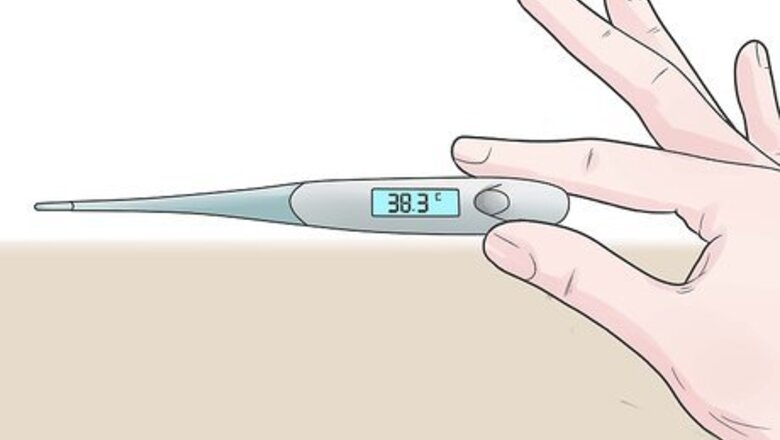
views
Quitting Cold Turkey
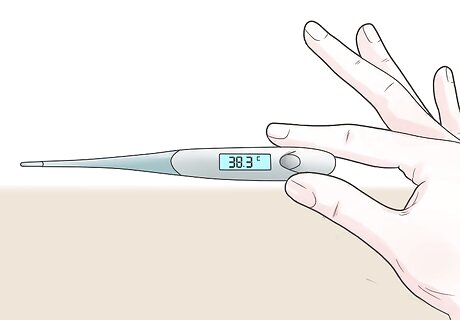
Quit cold turkey only if you're healthy enough to endure it. Withdrawing cold turkey means quitting heroin abruptly and getting your withdrawal symptoms over with as quickly as possible, usually 5-7 days of flu-like symptoms and suffering. It can be traumatic psychologically and physically, making it only recommended for users in relatively good health. Cold turkey heroin withdrawal is, in some cases, fatal, making going cold turkey is not recommended for pregnant women, or people with severe health problems.
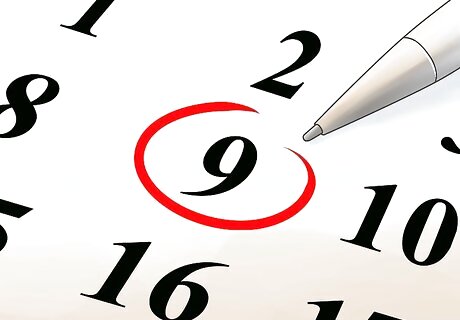
Set a definitive date and then taper down as much as you can. If you want to go cold turkey, it can help to try to get yourself down to as low a dose as possible before you stop altogether it to lessen the shock. Whether you want to say, "I'm cold turkeying starting Friday" or "I'm cold turkeying as soon as this runs out" is up to you, but set a point at which you'll have to force yourself to cold turkey, and go through with it. Take off work and get ready for the process. It's critical that you avoid "tapering down" as an excuse to keep using. If you're out of dope and you convince yourself to buy more just so you can taper, you're still using and you're not quitting. When you make the decision to cold turkey, you need to jump. Now. It's like a Band-Aid, just yank that thing off and get it over with.
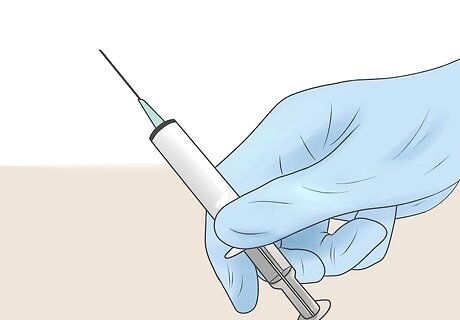
Burn all your dope bridges. When your cold turkey date rolls around, it's time to destroy all your works, your needles, your dirty spoons, flush your dope, get rid of the empty baggies lying around, even throw out your belt if you need to. Delete your dealer's number. Get rid of anything you associate with taking heroin in preparation for cold turkey. Make it impossible to use. If you don't trust yourself to really make it impossible, get help. Let a trusted friend, family member, or sponsor go through all your drawers with you and take everything away. Don't throw it in the kitchen garbage, destroy it by smashing it with a hammer and having someone else throw it away at an undisclosed location.
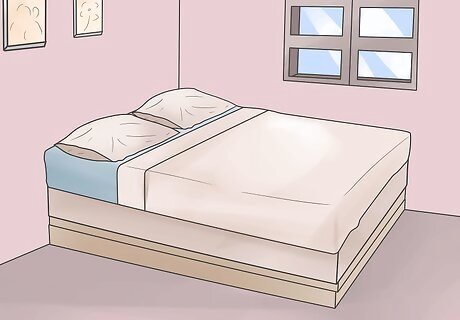
Find a place to stay. Have someone come over and help prepare your place, stocking up on the necessary supplies for enduring withdrawal, if you're going to cold turkey there, or check yourself into a safe place like a hotel or a friend's house where you'll be able to spend the week in quiet, and have them clean out your place for you while you're in the middle of it. Either way, wipe a week off your schedule and get ready for hell. Get someone to check up on you regularly throughout the hard week to come, or better yet, get someone to stay with you and see you through the process. It can be a dark and lonely feeling cold turkeying all by yourself. So don't.
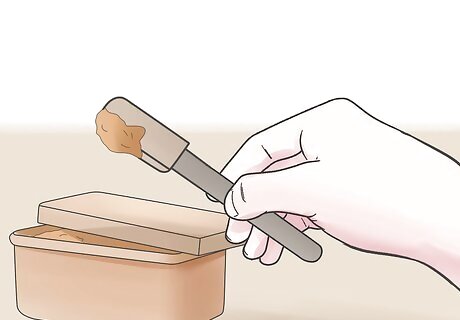
Stock up on everything you'll need for 5-7 days. The single most important thing you'll need is lots and lots of drinking water and time. It's essential that you stay fully hydrated while you're in the throws of cold turkey and that you cut yourself off from your life as an addict while you're going through withdrawal. Fluids, over-the-counter flu medication, and some food you'll be able to stomach like peanut butter and soup will help make the process a lot easier, as well as enough clothes to change into and out of.
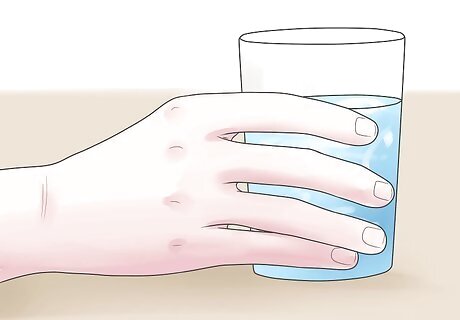
Drink lots of water, Gatorade, and grapefruit juice. Drink as much as you can stomach. Night sweats and diarrhea will be a problem, both of which can dehydrate you quickly, so make sure you've got plenty of water and you're keeping it down as best you can. Gatorade helps keep your electrolytes and your blood sugar up, while grapefruit juice can provide essential vitamins. Likewise, straight up multi-vitamins and isotonic mixtures do wonders. If drinks other than water nauseate you, try to water them down to drink them. Gatorade will really help keep your electrolytes up, which is essential. Cut the drink with some water and keep it down. You've got this.
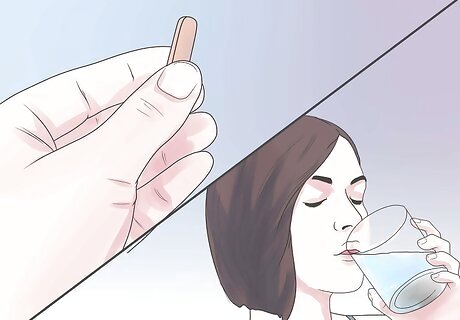
Take Nyquil, Imodium, and dramamine to combat the flu symptoms. There's no use beating around the bush: Heroin withdrawal will feel like the worst flu you've ever had, and it'll last for several relentless days. Common symptoms include severe night sweats, nausea, and diarrhea, so it's a good idea to keep some flu medication around and take it as needed to keep the symptoms in check and help you get some rest. In preparation, sometimes it helps to take a dose of milk of magnesia (magnesium hydroxide, a laxative) a few days before you start, while you're still tapering down, to clear out your system and make the diarrhea somewhat milder during cold turkey. Some have found success in taking large doses (30-40 mg) of Imodium for the first couple of days during the worst part of cold turkey, and then starting to taper down to avoid constipation. Try to space out the OTC drugs you take, if any, and avoid abusing them. Natural alternatives like Valerian are also popular and effective in calming your nerves and softening the nausea you'll experience. Since it even binds to the same brain receptors, think of it like herbal Valium that's cheap and available at Walmart.
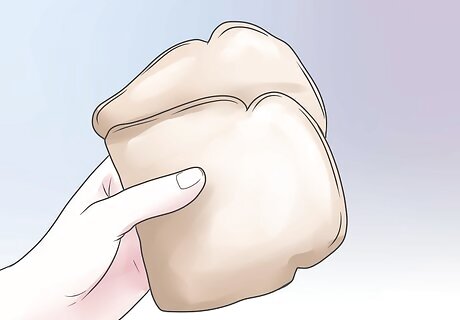
Eat something. Bread and peanut butter can save your life during cold turkey. It's going to be hard to keep anything down, but forcing yourself to eat a few bites of peanut butter sandwich will help give you strength and help you feel human. Keep some broth or ramen on hand to heat up and vary the routine a little, but whatever you do, try to eat a little bit every day to stay as human as possible.
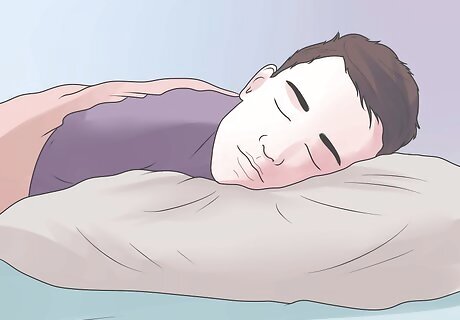
Stay clean and try to sleep. Have a pile of bedsheets handy because the night sweats can be rough. Change your clothes and underwear every day. try to keep yourself as clean as possible, if for no other reason than to distract yourself. Take warm baths when it feels appropriate and rest up. You're fighting the good fight, so try to relax as much as possible and rest. Feeling extremely cold chills will be common for you throughout cold turkey (that's why it's called cold turkey). Warm baths can feel really great, keeping you warm and close to normal. When you're feeling the chills come on and you can't get warm, jump in the bath or the shower and let the steam work on you.
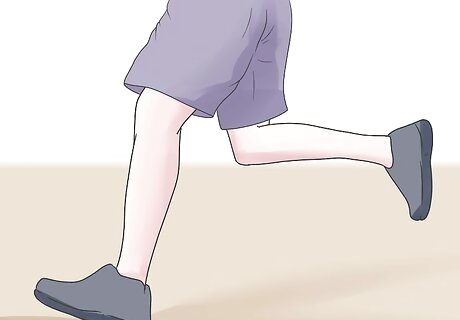
Get some exercise, if at all possible. It might sound ridiculous, or like the last thing that you'd want to do, but going for a long walk or jog is the single most effective way of relieving the leg cramps and chill-pains you're going to feel throughout the process. Sometimes it's even as if you don't have any symptoms at all when you're using your body to get some exercise. Force yourself to move around and then reward yourself with a warm bath. Take those first few steps toward being clean.
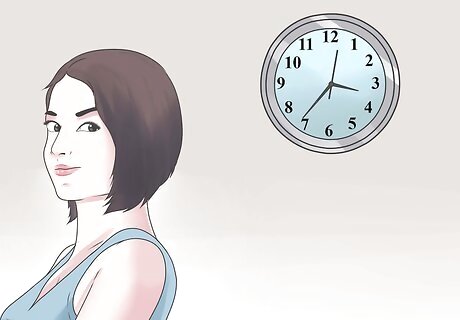
Take it a day at a time. You're fighting the hardest fight you'll ever be in. It's not going to be fun, but you're doing the first necessary work of quitting heroin for good and reclaiming your life. You're not a slave to dope. Prove it.
Quitting Warm Turkey
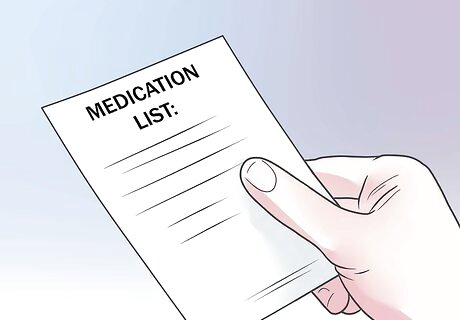
Consider using prescription medication to ease the effects of withdrawal. If the option is available, using certain prescription drugs in a controlled and careful environment can be a more effective method of kicking heroin for good. You can monitor your intake more carefully, curbing the withdrawal symptoms and keeping yourself feeling relatively normal while you quit heroin. While you run the risk of further addictions to other drugs, learning more about "warm turkey" methods can help ensure that you don't fall into their possible traps.
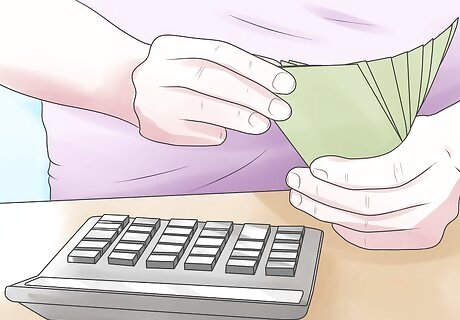
Explore free or low cost options in your area. The problem with warm turkeying, as opposed to quitting cold turkey, is that it costs money you might not have, and requires health insurance you might not be able to get. Call the Substance Abuse hotline 1-800-662-HELP (4357) to find out more about free or reduced clinics in your area you can learn more about and speak with to explore your options. To avoid becoming addicted to other prescription drugs, don't rely on the same old chain of dealers that resulted in you having to quit heroin in the first place. Don't try it on your own. Do it the smart way, by getting the professional medical help that's available to you and taking drugs as recommended.
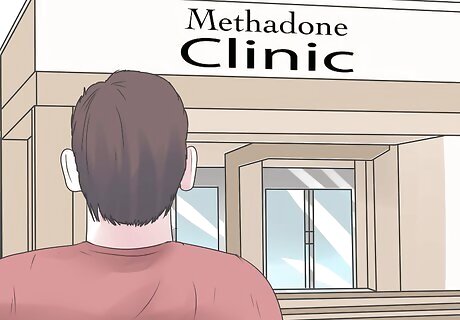
Find a state subsidized methadone clinic in your area. Methadone is an opioid agonist that's administered in a regulated manner at clinics, many of which are free or quite cheap, to help heroin users who hope to quit manage the symptoms of withdrawal and taper down in a supervised manner. It'll still be up to you to negotiate your quitting, but getting drug tested and checked out by physicians while you do it can help curb the psychological trauma of heroin withdrawal for some users. You're doing the right thing. Try to start with as low a dose as possible. Some clinics start with doses in excess of 70mg, making it "too easy" on some users who hope to quit more quickly and effectively. Communicate with the staff and let them know your intention of quitting, not dragging out the process. If you're healthy enough for a lower dose, try to force yourself to start smaller. It's unfortunately common for heroin users to become dependent on methadone, or even become double-dippers, who take methadone in the morning and begin using heroin later in the day when the effect wears off. Methadone isn't right for everyone, but it's usually the cheapest option, especially if you can apply and qualify for insurance aid in your state.
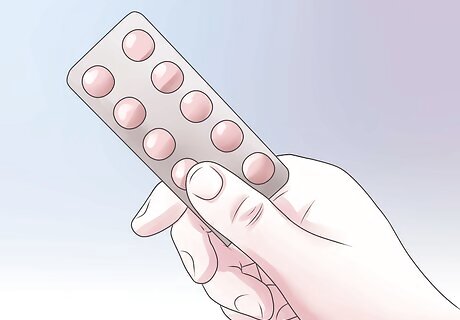
Talk to your doctor about the Suboxone or Subutex approach. Suboxone or Subutex is sometimes less of a hassle than getting on methadone, and will greatly help with cravings. For some, it's also much easier to taper off than methadone. The amount of time you will take Suboxone/Subutex is much shorter than Methadone as well-- maintenance generally lasts for 3 to 6 months, depending on the person and doctor.
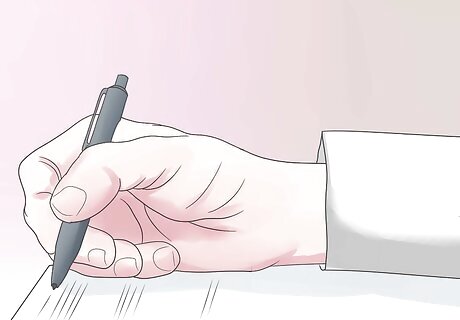
Prepare for the doctor's questions. It's important to be totally honest with any clinicians or doctors you consult about your addiction if you want prescription drugs to help quit heroin. Coming up with elaborate fantasy tales to tell as a way of getting a couple of Xanax could start a chain reaction in which you're rejected, get angry, and end up using again to manage the dope sickness. Come clean. If your goal is to quit heroin altogether, tell the doctor your intentions. They can help. You may need to agree to take periodic drug tests, HIV screens, and undergo other procedures to be admitted to state-run clinics. Getting on prescription drugs can be a much more involved process than getting a couple of pills, so prepare to be run through the gauntlet.
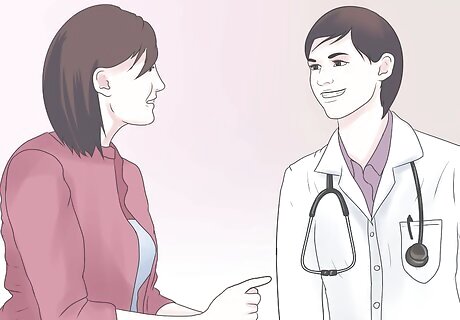
Ask about other prescription drugs to curb the withdrawal symptoms. If you don't want to go on methadone, or cheap options aren't available in your area, talk to your doctor about a prescription for other drugs that can help make the withdrawal process somewhat softer. As long as you take them in a smart and controlled manner, this can be an effective way of quitting. Never abuse prescription drugs while quitting heroin. Clonidine is a non-narcotic BP med, given by most addiction doctors, quite effective at managing your withdrawal symptoms, especially anxiety associated with the process. Valium and Xanax are benzodiazepines effective in treating addiction, battling insomnia, and treating your anxiety. Phenobarbital and Ativan are relatively-weak narcotics that are sometimes prescribed to help take the edge off. Tramadol is a painkiller sometimes prescribed specifically to combat leg pain or restless-leg syndrome and has proven quite effective in soften the restlessness associated with withdrawal.
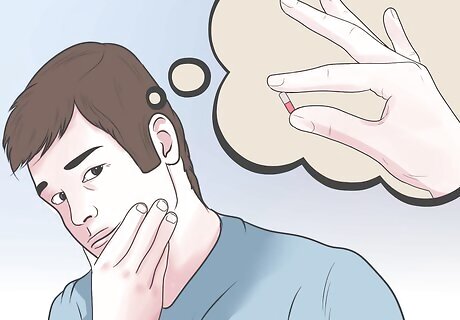
Commit to secondary withdrawal. The biggest problem with warm turkey methods of quitting heroin is that, ultimately, you're still on dope. It may have a different name, but if you're still daily using drugs to function, you're not quit yet. Whatever you're taking, you must also commit to going through the difficult work of quitting altogether and getting sober. Depending on your method of warming the turkey, your secondary withdrawal might be brief and mild, or it might be a close cousin to heroin. It may take several weeks before you start feeling normal again. Go through the same process of selecting a quitting date and committing to it.
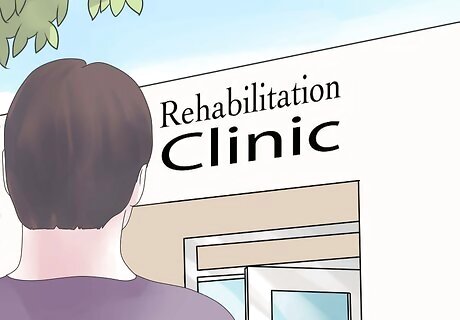
Consider attending a rehabilitative detox facility, if you can afford it. The warmest turkey would be a private rehab clinic you can go to while you experience withdrawal under full surveillance, receiving medical care, psychological care, and time away from your life as an addict. Unfortunately, a full rehab package for several weeks can cost somewhere in the neighborhood of $10,000. These packages are often the end result of family interventions and can actually serve to make addicts feel extremely guilty because of the associated cost. If you cold turkey alone and end up reusing, you might feel disappointed in yourself, but if you withdraw at a place that's costing your parents thousands of dollars a night, you might feel much more terrible and guilty. Don't let it get to the point where such a situation becomes necessary.
Understanding Your Addiction
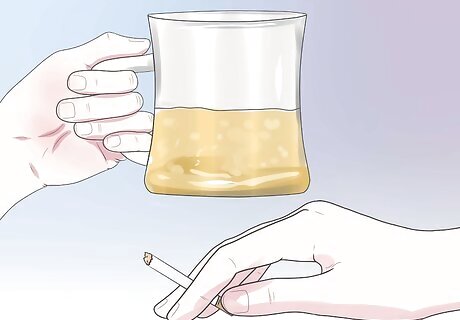
Understand that surviving your withdrawal is not the same as quitting. Quitting heroin is not like quitting booze, quitting cigarettes, it's not even like quitting cocaine. The physical and psychological halves of addiction are equally potent and equally difficult to negotiate. Heroin is the hardest drug to quit, and many addicts who've successfully negotiated their difficult physical withdrawal have ended up using again because they don't equally weigh the psychological withdrawal that will occur. Once you've made it through the initial weeks or months of kicking your habit, the work of life begins.
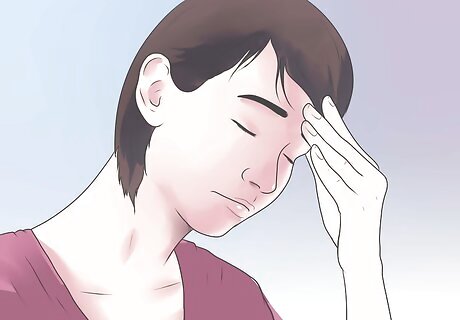
Address your mental addiction. If you're going to quit and stay quit, you've got to come clean and be honest with yourself: you're an addict. You may always be an addict. You've got to accept that this thing about you may never change--you may always want that shot or that line, your addiction may always be waiting out in the parking lot to beat you up, steal your wallet, and ruin your life. Quitting heroin means making a conscious choice to avoid that addiction, one day at a time. It's hard to think of quitting when you think, "I can't ever do this again, for the rest of my life." Don't worry about the rest of your life. Worry about getting to 5 o'clock pm without using. Then start worrying about getting to next Monday without using.
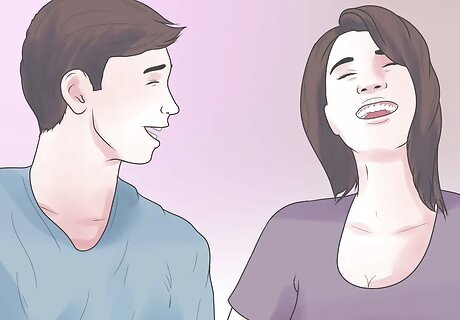
Learn to process and anticipate your euphoric recall. Very quickly you may start obsessing about how great another shot or line will be, letting the memory of all of the pain and problems that follow it recede into the background and only focusing on wanting to use again. You may even start to feel hints of the euphoria of making a buy and taking it back to your place, obsessing over and over about the process of scoring. Learn to manage these cravings and cut them off at the pass.
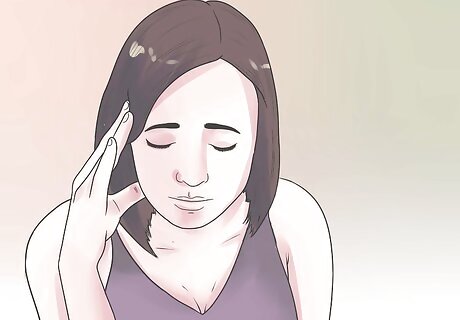
Be prepared for the lows. After the initial period of two weeks or two months, you may reach a holding pattern where things can seem boring, lifeless, as if the world were a boring black and white movie you have to sit through at school. This time period is when most addicts relapse, often with disastrous results. Depression is a serious problem for recovering addicts, making it important to get busy and start living your sober life.

Start talking to people. Narcotics Anonymous meetings can be extremely helpful in giving addicts a structure and community of people who are feeling the same things. You're not alone in your struggle, and listening to other peoples' stories and having a venue in which to tell your own can be uplifting and freeing to many people. Find a local NA meeting by clicking here. Alternatively, NA can really turn some addicts off. If the idea of spending several hours a week listening to other addicts talk endlessly about using drugs, or if you think that may drive you to use again, seek other social groups that can fulfill a similar hole. Check out bowling leagues, card groups, or any other kinds of sober social organizations that will give you people to talk to about a common subject or interest. Talking to a therapist can be restorative and instructive for many addicts. Deciding to confront your addiction means talking about it, coming clean with it, and being able to discuss it with someone who won't judge you or your life.
Staying Sober
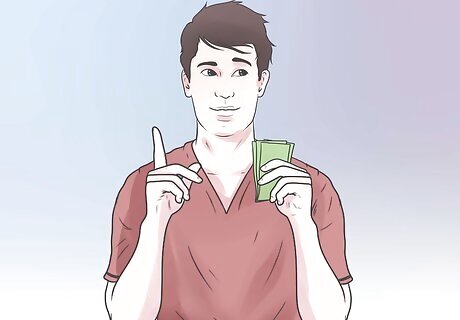
Put a reward system in place. A common facet of 12-step programs, whether you choose to participate in one or not, is that you recognize periods of sobriety and reward yourself for them. Even if the reward means the opportunity to look at your sober self in the mirror and say, "You've been sober for a week," it's important to let yourself celebrate the achievements of sobriety. Some addicts find it helpful to put all the money they used to set aside for dope and save it up to buy something nice for big sober milestones. Take a trip, or buy something nice for yourself. You deserve it.
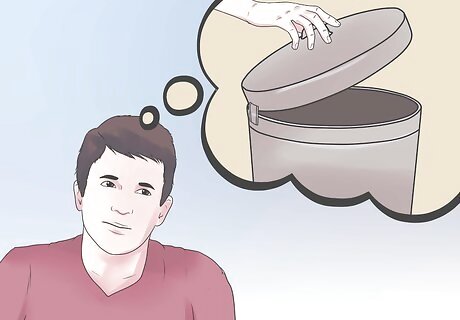
Create a trash bin in your mind. Temptations will happen. It will occur to you eventually that you'll want to score again, to use again, and to feel that feeling. Most relapses occur in the first 3-6 months of quitting heroin. While you might not be able to stop that old bird from landing in your mind, you don't have to let it build up a nest and stay. Some addicts find it helpful to visualize a "trash bin" in a corner of your mind where you can place those temptations, locking them away as soon as they surface. When you get a temptation, picture the garbage can and picture your temptation as a piece of trash. Put it in the can. Screw the lid on it. Keep it out of sight.
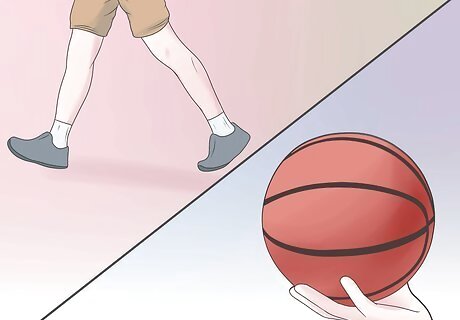
Maintain drug highs in other, healthier ways. So you kicked dope. Now what? Boredom can quickly become one of the biggest challenges to a recovering addict. How you choose to fill all that time you used to spend high will be completely up to you, but you're likely to be more successful if you can find a way of productively and healthily reproducing a similar kind of "high." This might mean creating something, taking up challenging sports that'll leave you exhilarated, or even something as simple as going for long walks and thinking. Use your sobriety as an opportunity to create a new life. It's a blank page. Start filling it.
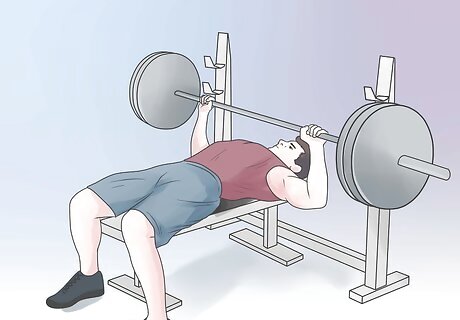
Own your body by exercising. Your body isn't a slave to heroin. Exercise helps the body excrete all the junk inside, like a natural detox, regulating metabolism and creating natural endorphin highs. Find a regular kind of exercise that you enjoy and that you'll be able to keep up regularly. Play sports or jog. If you can't stand exercise, start going to dance clubs and getting wild. Have fun. You're sober!
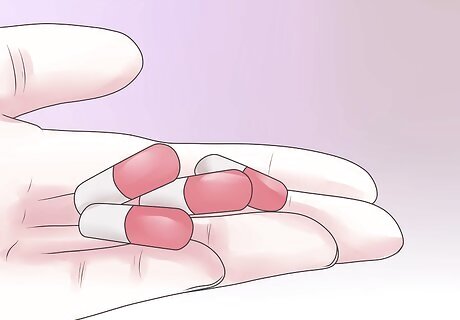
Use your sobriety as an opportunity to quit other drugs you may use. Generally, addicts aren't encouraged to try to give everything up all at once in formal rehab programs. Learn how you're able to cope with sobriety, however, by eliminating as many addictive substances as you can from your life and replacing them with other productive activity. If you replace your heroin high with other drugs, it may work for a short period of time, but it'll also likely keep you hanging around the same types of people, facing the same types of temptations, and you won't be sober. Know yourself. If you're still fighting a big battle against heroin temptations and feel like a couple cigarettes a day is your only sane lifeline, don't try to quit right away. Learn your own limitations and set a series of goals for yourself. If you want to quit everything, by when? Next week? Next month? Set a date for quitting pot or booze or cigarettes if it fits in with your goals for your life.
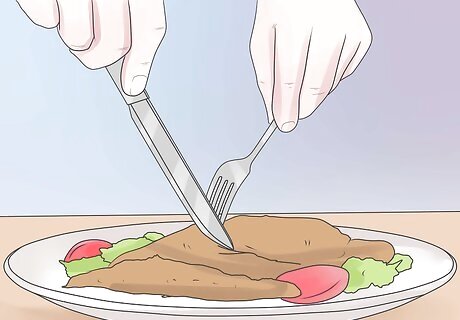
Own your body by eating healthy food. The concept of eating and enjoying food can be a baffling thing to some addicts, but taking care of your sobriety by embracing a healthy diet can help restore nutrients to your body and keep you healthy.
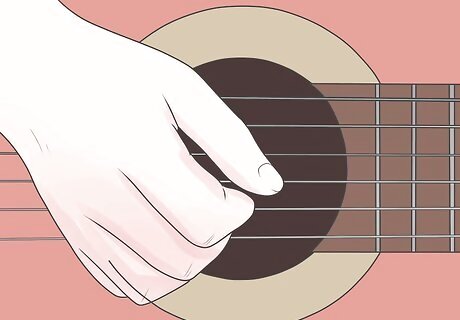
Find new hobbies to occupy your time. Avoid old haunts and old drug buddies, cultivating new sober acquaintances and exploring new hobbies that'll keep you occupied. If you're busy doing other things, heroin is much less likely to creep back into your life. It may be unfortunate but it's sometimes necessary to sever old friendships with people likely to suck you back into the drug world you crawled out of. You have to be smart and take control of your own sobriety. If you worry that hanging around a certain person might tempt you to use again, you've got to avoid that person. Tell them you don't trust yourself yet to be around them, but you'd love to see them get clean.
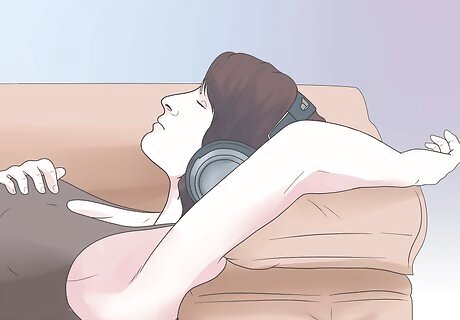
Let yourself relax. Depressions, guilt, and addictions can sometimes seem like they're lurking around every corner for the addict. Try to look through the windshield instead of the rear-view mirror. Don't focus on the things you've done, and the things that you might regret, focus on where you're going and what you are going to accomplish with your new sober life. Start living it.
Putting a Buddy List into Effect

If you are serious about becoming clean of heroin, you must have a friend with you that is really serious about helping you. Have him/her monitor all your phone calls just in case someone tries to call you and try to get you to buy something or your drug dealers calling you to find out why they haven't heard from you.
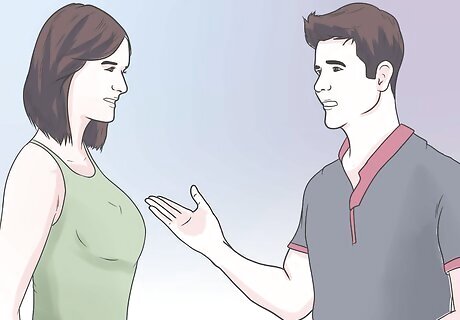
Educate the person you have chosen for your buddy system. Explain to them the severity of the symptoms included in withdrawal so that they can assist you and continue to help you get through it.

Keep a positive mind even though you feel as though your life is completely over. Never keep yours feelings bottled up, it will only cause more problems. Make sure that the person that you choose for your buddy system is trustworthy and is sincere about helping you. Make sure that the one you choose is someone that you can talk to about anything in your life and preferably is someone that you have known for many years.

Remember that the buddy you choose did not do this to you. So even when you are at your lowest peaks, remember that they do not have to help you and that they chose to do so. Most of all, remember that they have feelings too. And warn them in advance that you are going to be moody and to not take anything you say during withdrawal seriously.











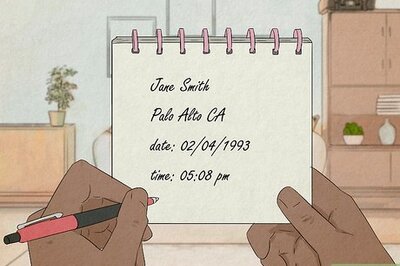


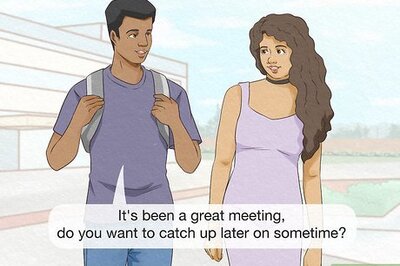
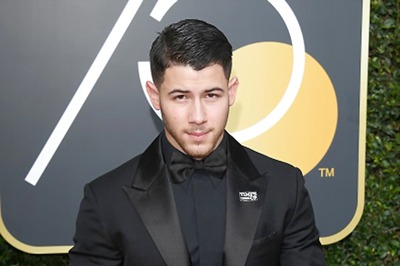




Comments
0 comment